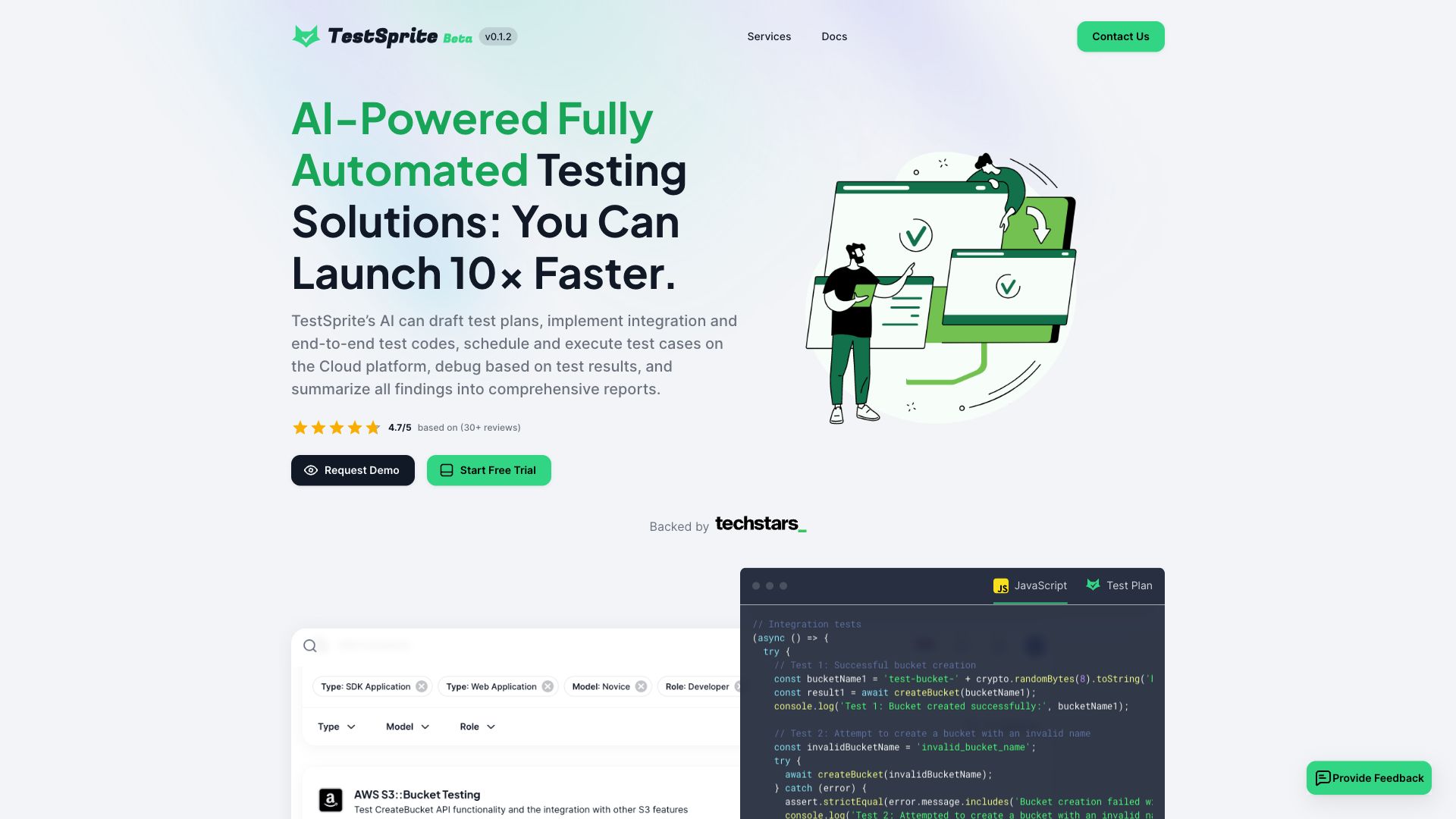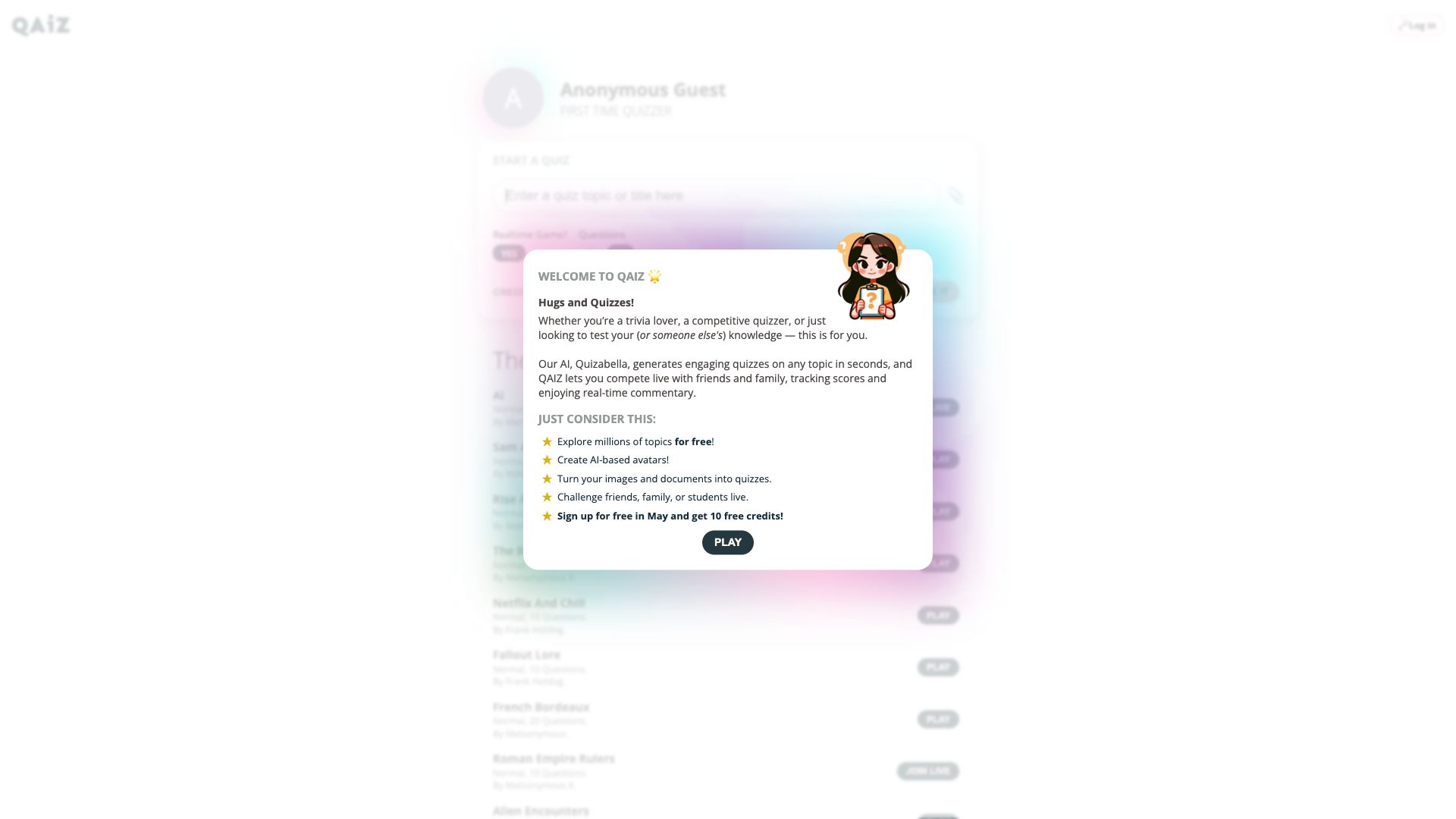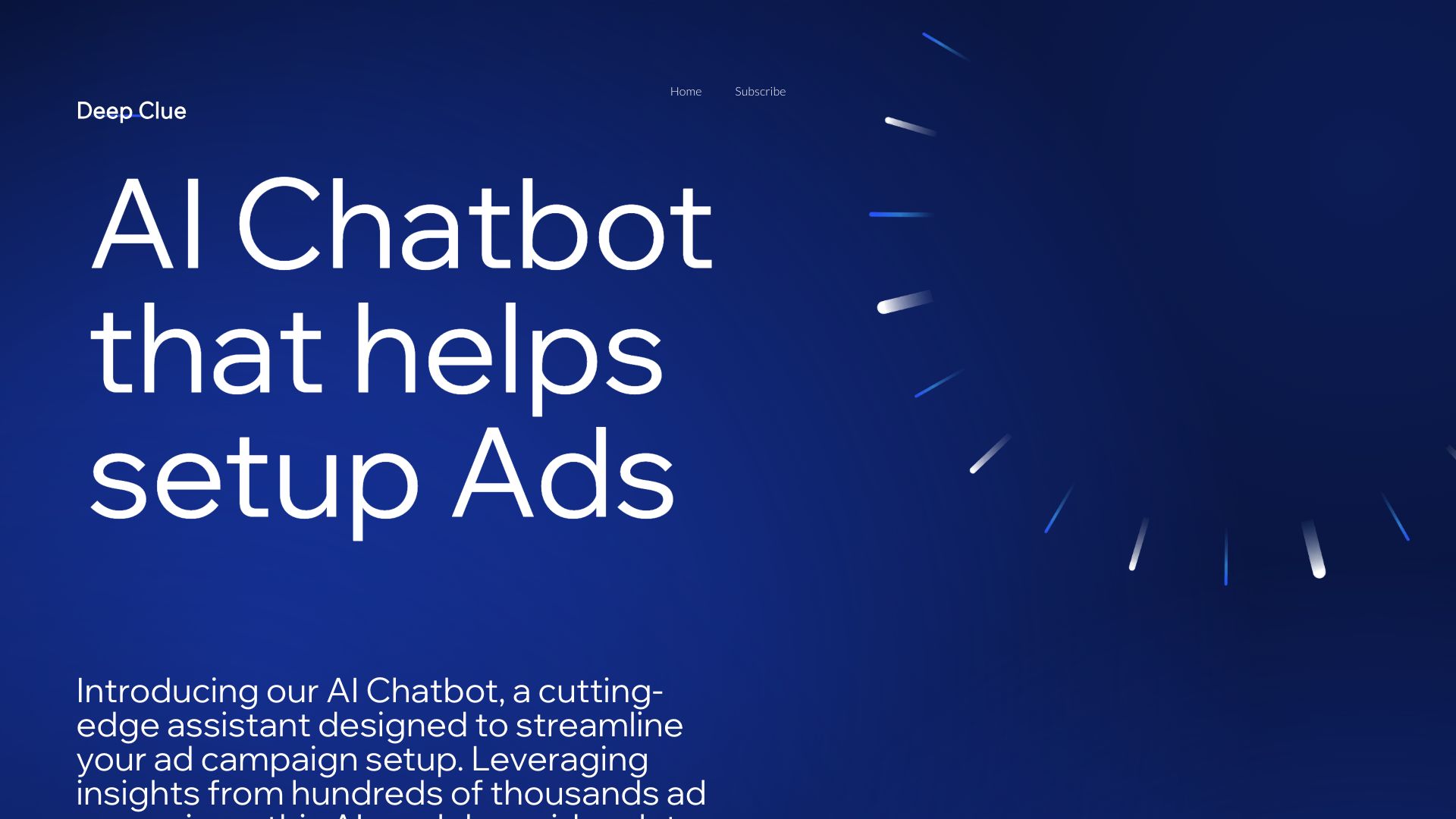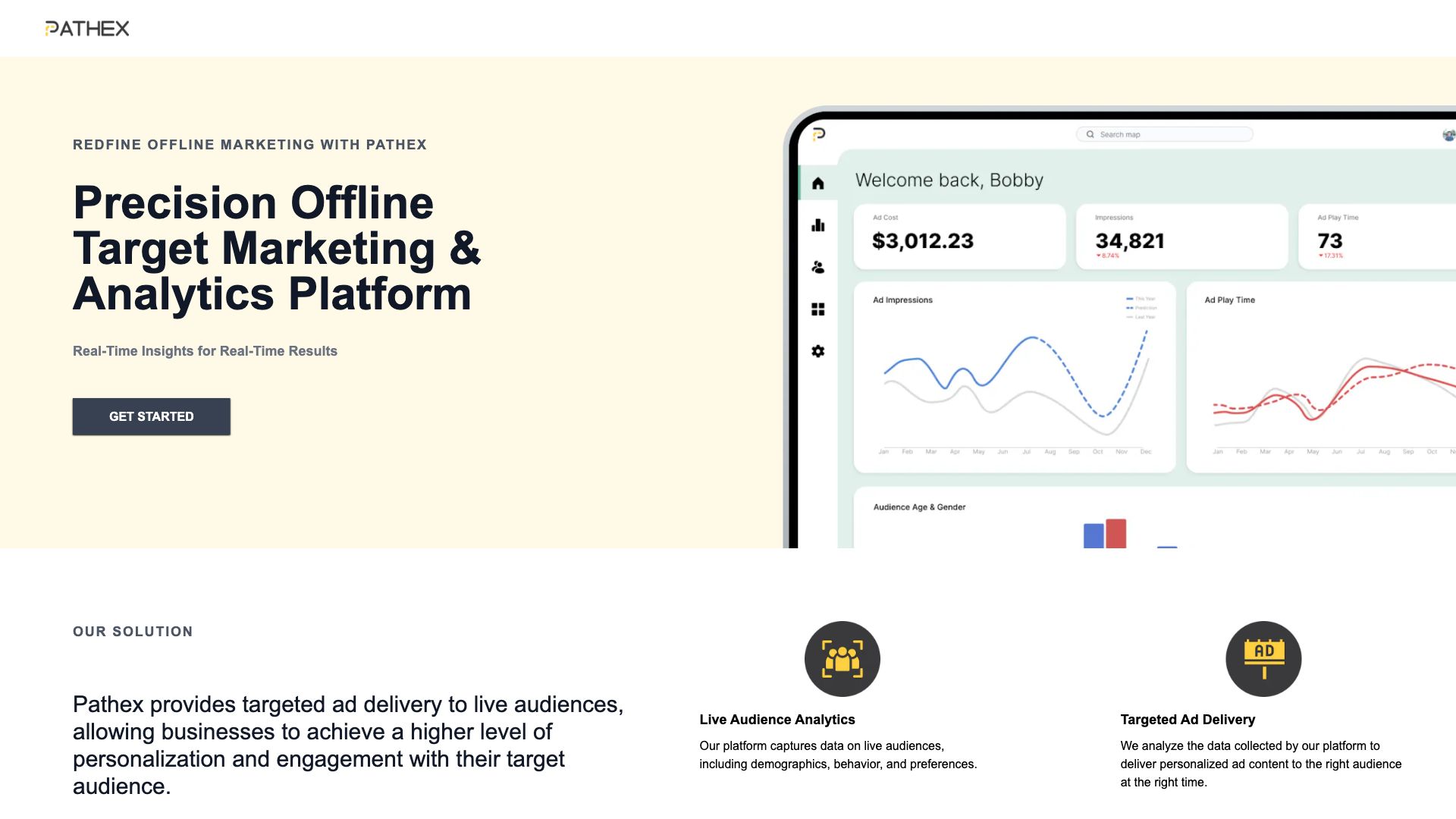Awesome AI Testing & QA Tools in 2024
Discover the awesome 4 AI tools for 2024 By Candytools
TestSprite’s AI can draft test plans, implement integration and end-to-end test codes, schedule and execute test cases on the Cloud platform, debug based on test results, and summarize all findings into comprehensive reports.
QAIZ is a no-code test automation platform that empowers anyone to create, run, and scale tests across web, mobile, and API - no coding required. Improve software quality and accelerate delivery with QAIZ.
Deepclue is a leading text annotation and data enrichment platform that helps you create high-quality datasets for machine learning. Streamline your annotation workflow, leverage the power of AI, and scale your data projects with Deepclue.
PathEx leverages artificial intelligence to streamline and enhance software testing processes. Our platform empowers QA teams with automated test generation, intelligent test execution, and comprehensive reporting to accelerate software delivery and improve product quality.
More AI Tools Categories
What is AI Testing & QA?
AI Testing & QA refers to the use of Artificial Intelligence (AI) to enhance and automate the process of software testing and quality assurance. AI is transforming testing by making it faster, more efficient, and more intelligent.
Here's how AI is being applied in software testing:
1. Test Automation:
- AI-Powered Test Case Generation: AI algorithms can analyze code, user stories, and other requirements to automatically generate test cases that cover a wider range of scenarios, including edge cases that might be missed by manual testers.
- Self-Healing Test Scripts: AI can help test scripts adapt to changes in the application's user interface (UI) or functionality, reducing the need for manual script maintenance and improving test stability.
- Test Execution Optimization: AI can analyze test results and prioritize test cases based on risk, code coverage, or other factors, optimizing test execution time and focusing on areas most likely to have defects.
2. Defect Prediction and Prevention:
- Code Analysis and Defect Identification: AI can analyze code for potential defects, security vulnerabilities, and performance bottlenecks before the software is even released, helping prevent issues early in the development cycle.
- Risk Assessment and Prioritization: AI can help QA teams prioritize testing efforts by identifying areas of the software that are most critical or have the highest risk of defects.
3. User Experience (UX) Testing:
- Visual Testing: AI-powered visual testing tools can detect visual inconsistencies or regressions in the UI, ensuring a consistent and high-quality user experience.
- Accessibility Testing: AI can help ensure that software meets accessibility standards, making it usable for people with disabilities.
4. Performance Testing:
- Load and Stress Testing: AI can simulate realistic user loads and analyze system performance under stress, identifying bottlenecks and optimizing performance.
Benefits of AI in Testing & QA:
- Increased Test Coverage: AI can help generate more comprehensive test suites, covering a wider range of scenarios and edge cases.
- Improved Test Efficiency: AI-powered automation reduces manual effort and speeds up the testing process.
- Earlier Defect Detection: AI can identify potential defects early in the development cycle, reducing the cost and impact of fixing them later.
- Enhanced Software Quality: By improving test coverage and defect detection, AI contributes to higher-quality software releases.
Examples of AI Testing Tools:
- Testim.io: Uses AI for test automation, including test case generation and self-healing scripts.
- Applitools: AI-powered visual testing tool for detecting UI regressions.
- Functionize: Employs machine learning for test automation and performance testing.
- Mabl: AI-driven testing platform for web and mobile applications.
Challenges of AI in Testing & QA:
- Data Dependency: AI algorithms rely heavily on data for training and analysis. Poor-quality or insufficient data can lead to inaccurate results.
- Explainability and Transparency: The decision-making process of some AI algorithms can be complex and opaque, making it difficult to understand why certain test cases were generated or defects were identified.
- Human Expertise Still Required: AI is a powerful tool, but it's not a replacement for human testers. Experienced QA professionals are still essential for defining test strategies, interpreting results, and making informed judgments.
AI is revolutionizing software testing and QA, making the process faster, more efficient, and more intelligent. While challenges remain, AI-powered tools are helping developers create higher-quality software and deliver better user experiences.



